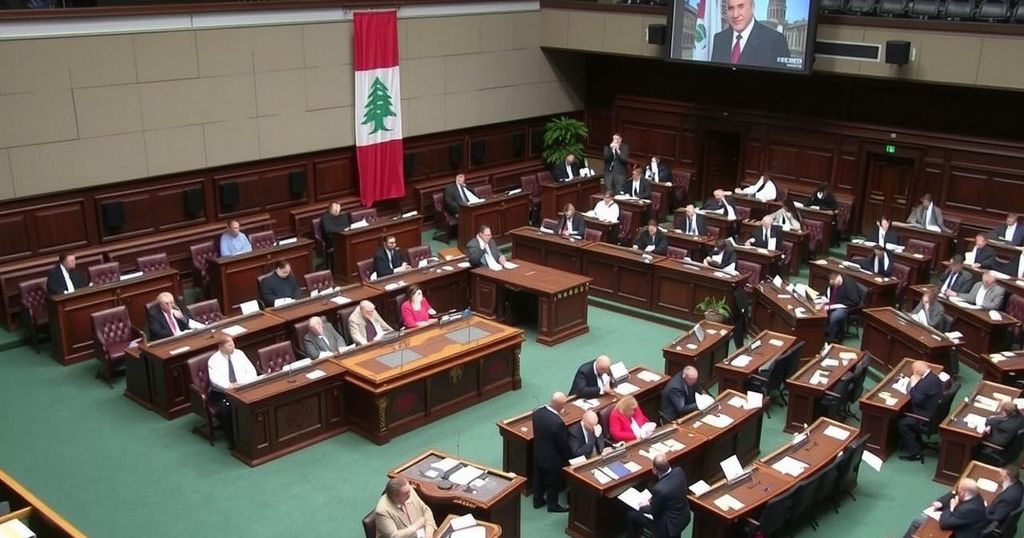Lebanon’s Parliament Moves to Elect President After Prolonged Vacancy

Lebanon’s parliament attempts to elect a president after a two-year vacuum due to former President Michel Aoun’s departure. Army commander Joseph Aoun is the favored candidate, especially after Suleiman Frangieh’s withdrawal. Constitutional issues pose hurdles, and Lebanon’s power-sharing system complicates the election process, all while the country faces a dire economic crisis.
Lebanon’s parliament reconvened in an effort to elect a president after a protracted vacancy exceeding two years. As the parliament takes this initiative, army commander Joseph Aoun has emerged as the frontrunner. Despite 12 previous attempts to select a successor to former President Michel Aoun, indications suggest that this voting session might result in the appointment of a head of state. Joseph Aoun is viewed as the preferred candidate of both the United States and Saudi Arabia, crucial allies for Lebanon’s reconstruction post-conflict with Israel.
In a significant political maneuver, Suleiman Frangieh, a candidate previously backed by Hezbollah, announced his withdrawal from the race, endorsing Joseph Aoun instead. This endorsement appears to smooth the path for Aoun to potentially secure the presidency. However, Lebanon’s intricate sectarian power-sharing structure historically complicates the election process, with the nation having experienced notable presidential vacancies in the past, such as the prolonged absence of a president lasting nearly 2.5 years from May 2014 to October 2016.
Though Joseph Aoun is the army commander, and traditionally barred from presidency under Lebanese law, prior instances exist of this ban being waived. Consequently, he faces additional procedural challenges. Under Lebanese law, achieving a two-thirds majority of the 128-member parliament is required for election in the first round, and due to constitutional constraints, he would similarly need this majority in the second round.
Alongside Joseph Aoun, other candidates include former finance minister Jihad Azour and Elias al-Baysari, the acting head of Lebanon’s General Security agency. The significance of electing a president cannot be overstated, as it is essential for appointing a permanent prime minister and establishing a cabinet to address the myriad issues confronting Lebanon, including a political vacuum and ongoing economic crisis.
The political landscape in Lebanon has been heavily affected by its fractious sectarian power-sharing system, creating frequent deadlocks in governance. The current vacuum emerged after former President Michel Aoun’s term ended in October 2022, leading to a series of unsuccessful attempts to elect a new leader. Lebanon’s previous extended vacancies, with one lasting until 2016, underline systemic dysfunction within its political framework. Moreover, given the ongoing economic and financial crises, the need for a stable government is paramount to address reconstruction needs and governance issues.
In conclusion, Lebanon’s parliamentary efforts to elect a new president reflect urgent political and economic imperatives. With Joseph Aoun emerging as a leading candidate, particularly after gaining Frangieh’s endorsement, there is optimism for a resolution to the protracted presidential vacancy. Nevertheless, constitutional obstacles remain, and the incoming government will encounter significant challenges, particularly in economic recovery and political reconciliation.
Original Source: www.hindustantimes.com







